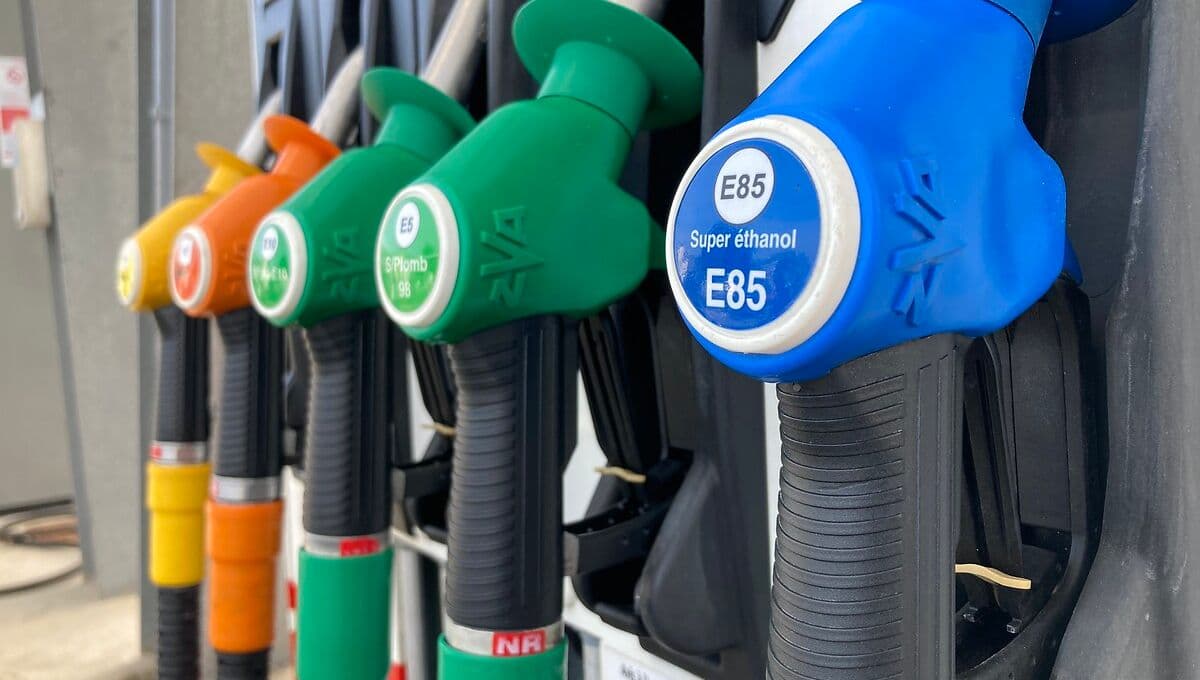Comparison: Gasoline, Diesel, Hybrid, or Electric – Which to Choose in 2025?
Facing the rapid evolution of the automotive market and environmental concerns, choosing between a gasoline, diesel, hybrid, or electric car in 2025 can be challenging. Each type of engine has its own advantages and drawbacks, whether in terms of costs, environmental impact, or suitability for different types of journeys. This article analyzes the features of each engine type to help you make the best choice for your needs.
Quick Comparison: Which Engine Type for Which Use?
1. Gasoline
Ideal for city driving and short distances, gasoline engines are valued for their relatively low purchase price. However, they consume more fuel than other options and generate higher CO₂ emissions. This choice suits those who primarily drive in urban areas or seek high performance.
2. Diesel
Perfect for long journeys and regular highway use, diesel engines stand out for their low fuel consumption, making them economical for high-mileage drivers. However, their emissions often face restrictions in city centers—a critical factor to consider, along with the engine clogging that can occur with infrequent use.
3. Hybrid
Hybrids offer an attractive compromise for those who alternate between city and highway driving, thanks to their low consumption, reduced emissions, and manageable maintenance costs. While they are more expensive to purchase, they offer savings over the long term.
4. Electric
Electric vehicles (EVs) are the most environmentally friendly option, with zero CO₂ emissions during use. Perfect for urban driving, they offer long-term savings through low charging costs. However, limited range and higher initial purchase prices may pose challenges for some drivers.
1. Why Choose a Gasoline Car in 2025?
Performance and Affordable Purchase Price
Gasoline engines are often the most accessible in terms of initial cost. In 2025, gasoline cars remain ideal for drivers who primarily take short trips within cities or suburban areas. They are known for their smooth driving experience and lower purchase costs compared to hybrids and EVs.
Drawbacks of Gasoline
However, gasoline cars tend to consume more fuel than diesel vehicles and produce higher CO₂ emissions. Additionally, with increasing restrictions on polluting vehicles, their access to city centers could be limited in the medium term.
Conclusion: Opt for a gasoline car if you prioritize short trips and affordability. For frequent urban driving, they can be a good solution, although their environmental impact is relatively high.
2. Diesel the Best Choice?
Fuel Efficiency and Durability for Long Trips
Diesel vehicles, due to their energy efficiency, are well-suited for long-distance travel and highway use. Their fuel consumption is lower than gasoline cars, making them ideal for those who cover extensive distances. Additionally, modern diesel engines now come equipped with technologies to reduce emissions.
Challenges of Diesel Engines in 2025
Despite these advantages, diesel engines are increasingly restricted in many European cities like Paris and Lyon. Diesel vehicles emit nitrogen oxides (NOx), which contribute to air pollution, potentially leading to bans in some urban areas.
Conclusion: Diesel is advantageous for drivers making long highway trips and seeking low fuel consumption, but it is less recommended for urban and restricted areas.
3. Are Hybrid Vehicles the Ideal Compromise?
Fuel Savings and Versatility
Hybrids combine an internal combustion engine (gasoline or diesel) with an electric motor. This setup offers significant fuel savings, especially in cities where the electric motor takes over during frequent stops. Hybrid engines are particularly well-suited for mixed use, alternating between city and highway trips.
Cost and Environmental Impact
However, hybrids are more expensive to buy than gasoline or diesel models. That said, they benefit from purchase incentives and tax advantages in many regions, thanks to their reduced emissions compared to traditional engines.
Conclusion: If you seek a good balance between low fuel consumption and versatility, hybrids are an excellent choice for 2025. They are particularly recommended for those who alternate between urban and highway driving.
4. Electric Vehicles: The Future of Mobility?
Zero Emissions and Long-Term Savings
Electric vehicles are the most eco-friendly option. They emit no CO₂ while driving, making them eligible for low-emission zones. In terms of energy costs, EVs are unbeatable: charging an electric car is far less expensive than refueling with gasoline or diesel.
Considerations
However, EVs come with some drawbacks, such as a more limited range compared to traditional engines. Despite improvements in charging infrastructure, availability remains uneven depending on the region. The purchase price is also higher, although subsidies and fuel savings offset this initial investment.
Conclusion: Electric cars are perfect for daily urban and suburban trips, with very low charging costs. They are the ideal option for drivers looking to reduce their carbon footprint and who have access to charging stations.
Cost Comparison in 2025
- Gasoline: Moderate purchase price, average fuel consumption, moderate maintenance costs, but high CO₂ emissions.
- Diesel: Low consumption and long range, higher maintenance costs, with urban restrictions.
- Hybrid: Very low consumption, high purchase price, reduced emissions, and versatile performance.
- Electric: Zero CO₂ emissions, low charging costs, reduced maintenance, but high purchase price and limited range.
Which Engine Type to Choose in 2025?
- For short urban and suburban trips: Electric vehicles are the best choice in 2025. They offer energy savings and tax advantages in many cities, though regular access to charging stations is necessary.
- For frequent long-distance travel: Diesel remains an economical choice for fuel efficiency, especially on highways. However, be cautious about urban restrictions.
- For versatile use: Hybrids, combining gasoline and electricity, offer a good compromise for those alternating between urban and highway trips, with a reduced carbon footprint.
- For a limited budget: Gasoline engines are still an affordable option, especially for short trips. However, they are less advantageous environmentally and may face urban restrictions.
Need help choosing your next car based on your driving profile? Contact Drivite for a personalized analysis of your project to make the best choice, or check out our other articles to learn more about automotive trends in 2025.
About the author
Léo Saunier
